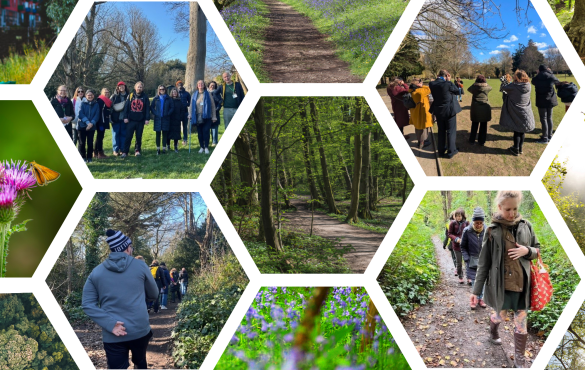Conserving the natural environment is always high on the agenda, as a major focus for governments and with many reports of climate change in the media. The focus is often on the wider impact for communities and the natural world. But why is connecting with nature so important for individuals and specifically, for mental health? As the Mental Health Foundation says:
“There is a simple thing that can help support good mental health… nature. Nature can really help put things in perspective, take the pressure off and bring calm, wonder and joy to our daily lives.”
We fully endorse this at The Conservation Volunteers – connecting people to green spaces to deliver lasting outcomes for both is what we do.
That’s why we’re joining in Stress Awareness Month, bringing nature connections to the forefront of people’s minds so that for one month, we notice – and remind ourselves – how it can support our mental health.
We hope that really feeling the benefits of connecting with nature can build habits to last a life time. Read on to find out tips for how to do this in your every day life.
Why is nature important for mental health?
The Mental Health Foundation have done extensive research into why nature is vital in keeping us emotionally, psychologically and physically healthy which can be read here. During the mental health charity’s research they also found that:
- More than 4 in 10 say being close to nature makes them less worried or anxious.
- More than 6 in 10 UK adults say being in nature has led them to experience positive emotions such as calm, wonder and joy.
- 7 in 10 say that being close to nature improves their mood.
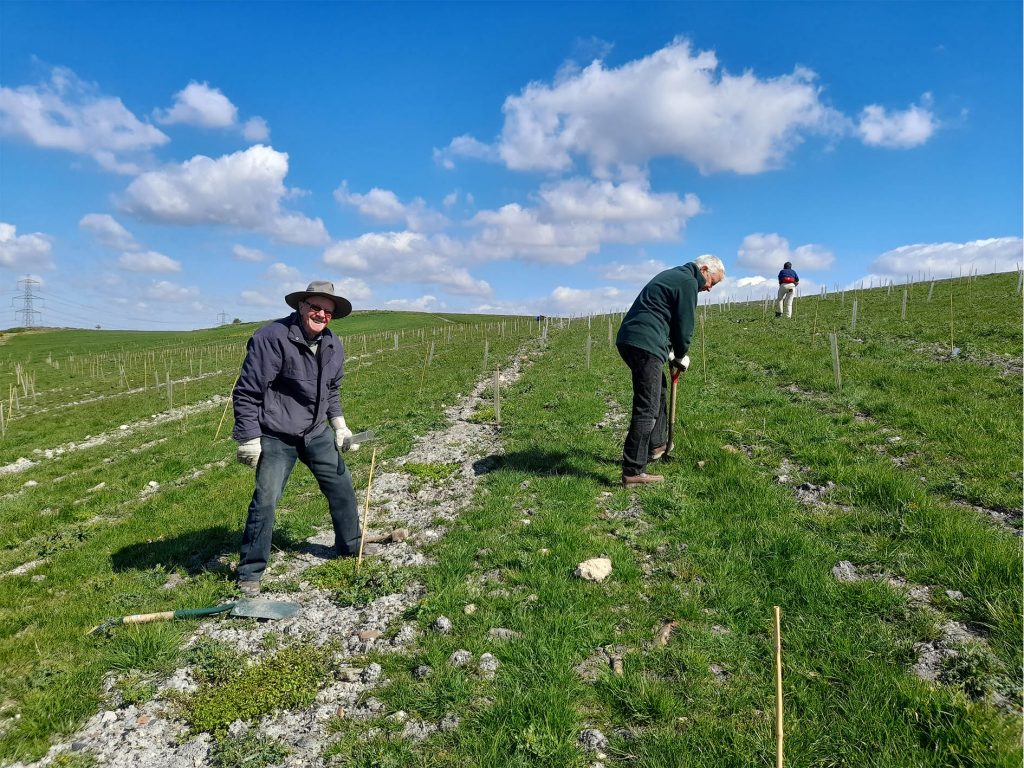
Through our work at TCV, we know that volunteering in green spaces – particularly with a social aspect – reduces anxiety and feeling of stress.
During the first UK lockdown in March 2020 as access to nature and group volunteering was restricted, 73% of our volunteers said their value of green spaces increased and 32% said their mental health got worse.
We know that as well as improving general wellbeing, connecting with nature is correlated with pro-environmental behaviour and with positive attitudes to the natural environment.
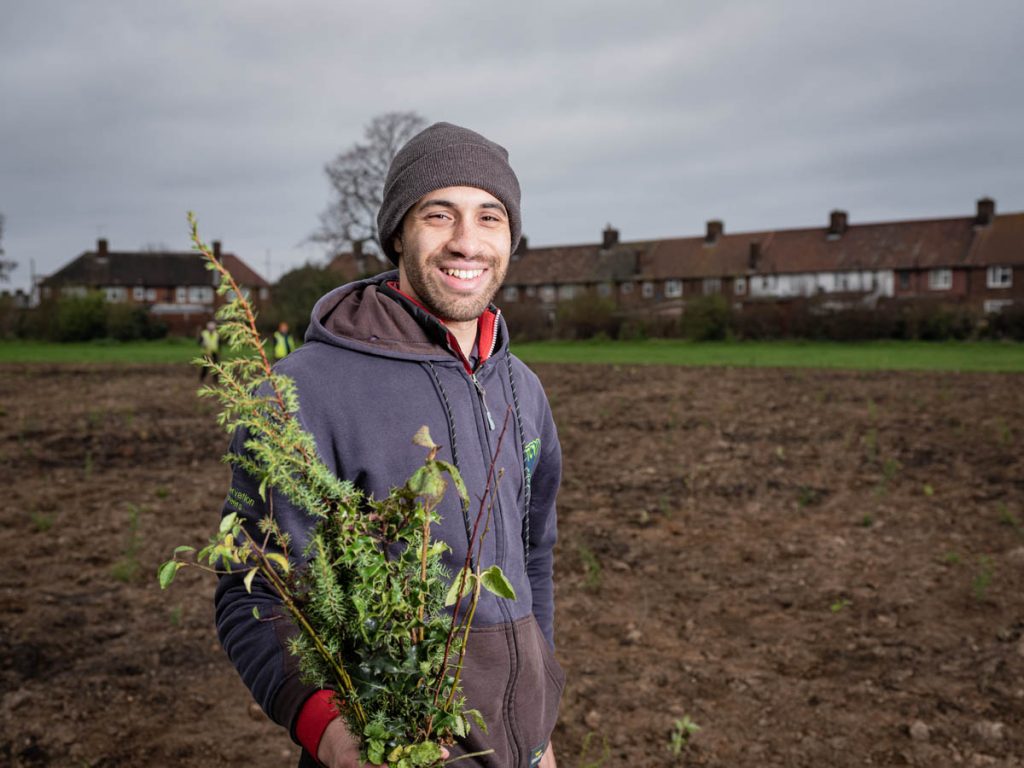
So if connecting with nature is so important for mental health and the other positive benefits, how do we increase it?
Connect with nature and feel good
Many of TCV’s volunteers come to regular sessions or have formed their own Community Group as part of our free network, but there are also simple things you can do at home.
We align our work with the New Economics Foundation ‘Five Ways to Wellbeing’ to help improve our volunteers’ personal wellbeing, and we thought this was a perfect start for connecting with nature this Mental Health Awareness Week.
Connect
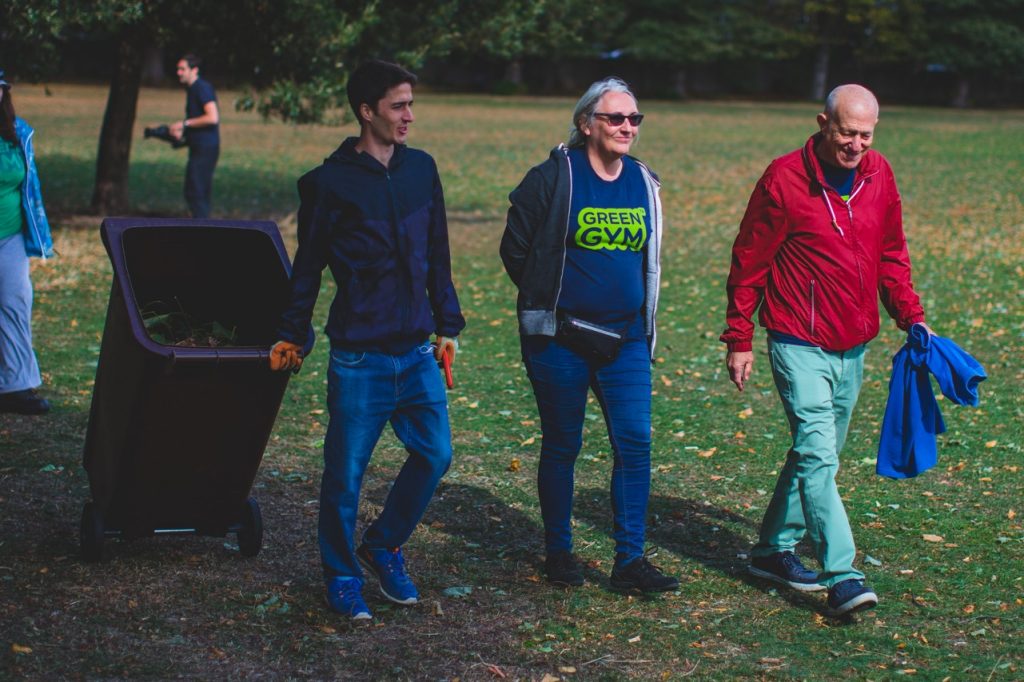
- Connect with others AND nature. Meet a friend for a walk in a green space – whether that’s a rambling countryside walk or a flower-filled corner of your local park.
- The next time you’re speaking with friends and family via phone or video, find a quiet spot outside or ‘walk and talk’!
- Connect with yourself. Ask yourself ‘what is it I need right now?’ – is it some time off work, a break from routine or just a change of scenery? And get outdoors.
Be active
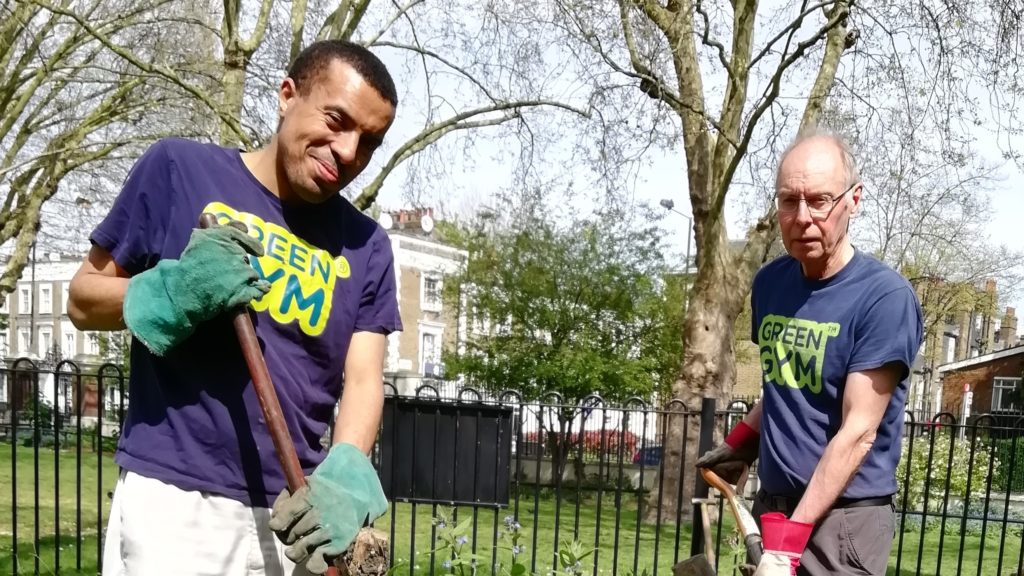
- Daily movement is important to combat sedentary lifestyles. Go for a walk or a bike ride and take in the green (and blue) scenes around you.
- Add structured exercise too – joining your local Green Gym is a great way to include connection with nature for your community’s benefit as well as your own.
- Have a garden? Get outside and plant something new, sweep up the leaves or turn it into your own green gym. Turning compost is sure to get that heart rate up.
Take notice
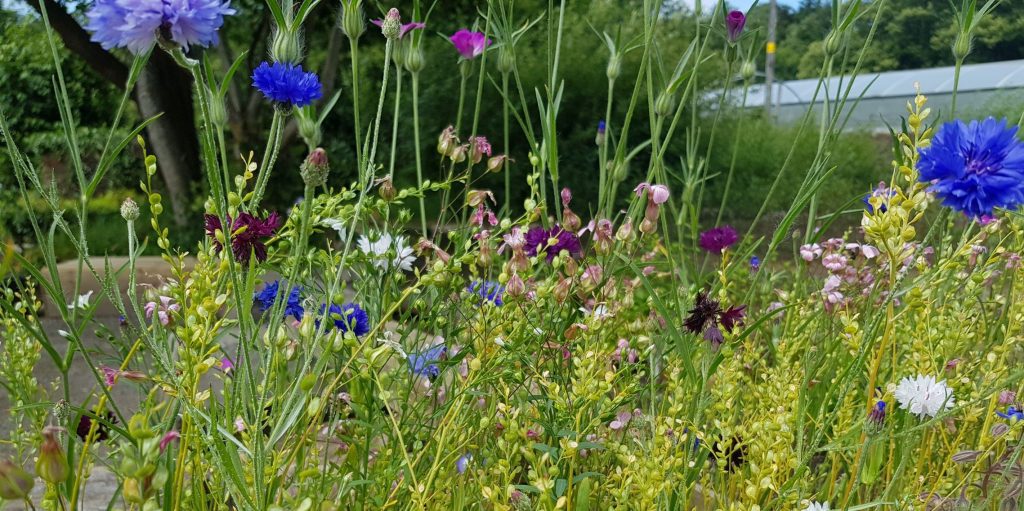
- Be curious – explore your local area a bit more. Are there public footpaths you haven’t yet ventured down?
- Notice the change in season
- Pay attention to the present moment – what can you hear, see, smell, touch and taste? Engaging all five senses helps to calm and centre you
- Commute to work? Take a different route tomorrow and try to spot noticeable trees, interesting gardens or what’s on the horizon.
Keep learning
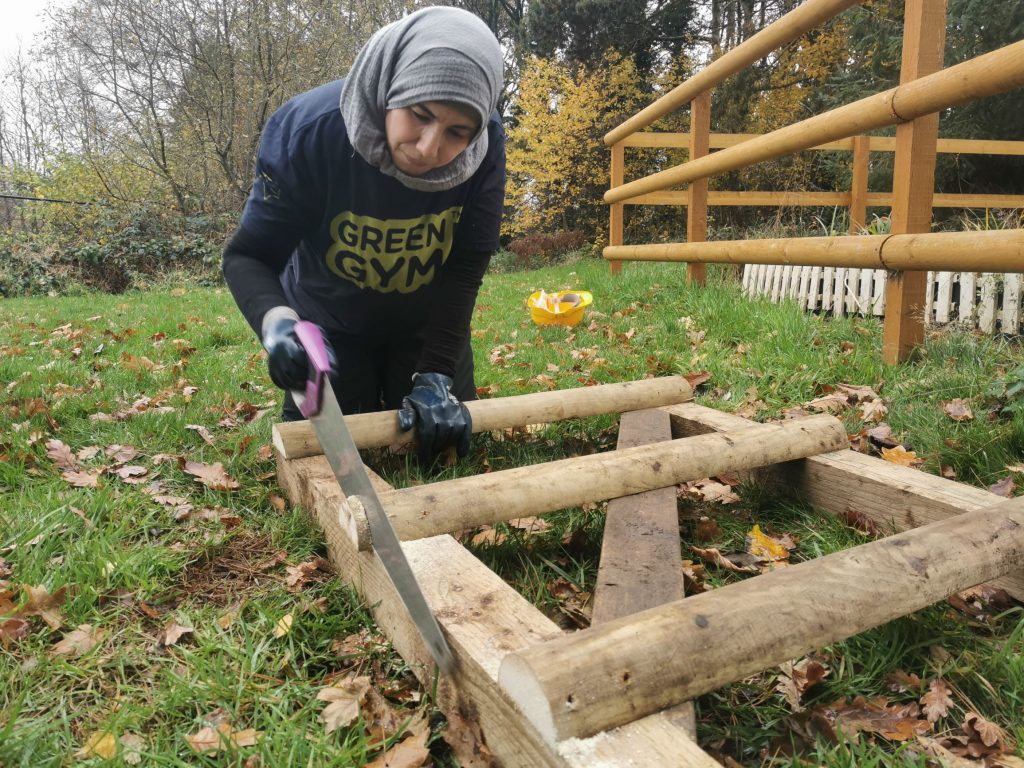
- Great news – even watching nature documentaries has been shown to be good for our mental health! Catch up on the latest documentary by TCV’s Vice President, Sir David Attenborough.
- Try something new using online guides. Learn to grow and cook with seasonal vegetables or use household objects to make planters, bug hotels and more!
- Become a Citizen Scientist – a great way to get outside, to learn more about the natural world and contribute to important scientific research.
Give
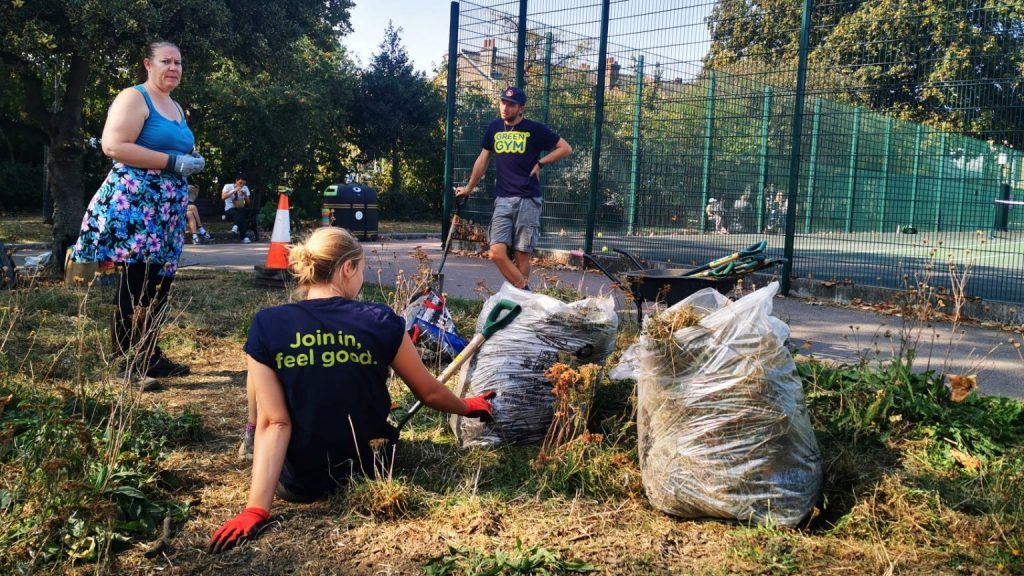
- Do something good for your community while being out in a green space – join a local TCV volunteering group or community group, pick up the litter you spot on your walk, or ask your neighbours if they need help with garden tasks.
- Donate – charities are always appreciative of any donation, no matter how big or small. If you can and supporting others to connect with green spaces is close to your heart, you can donate to TCV here.
Mindfulness in green spaces
Much of what links the 5 Ways to Wellbeing is ‘Mindfulness’. It has become popular in recent times and rightly so. Many people associate mindfulness with meditation or activities such as mindful colouring in (we love doing this too!) But it’s simply being present in the moment and we encourage you to think about this as you connect with nature.
During TCV volunteering sessions, we build in mindfulness techniques, for example:
- Feeling all 5 senses when planting a tree
- Reflecting on how creating wildlife habitats makes you feel
- Seeing the beauty in cleared litter or brambles
- Finding the meaning in your effort to increase biodiversity.
This approach is reflected in Professor of Human Factors and Nature Connectedness, Miles Richardson’s, work to create a pathway to a closer connection with nature.
You, your community and planet
Many experts also reference a 6th way to wellbeing as ‘Care for our planet’. What better way to increase wellbeing and connection to nature than increasing our individual contributions – whether that’s planting out bee-friendly flowers, being part of the movement to increase tree coverage, or joining a local group whose work encourages wildlife and flora to flourish.
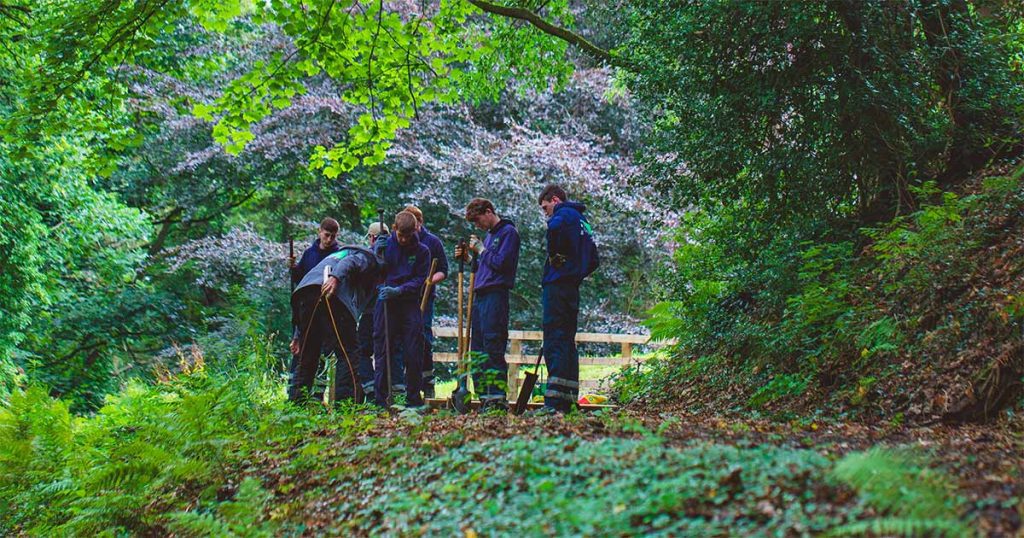
Caring for our planet can help towards not only increasing environmental impacts and your own connection with nature, but improving the mental wellbeing of your community.
Mental Health Foundation found through their research that “high quality” natural spaces are better for us and our wellbeing. For both rural and urban areas, this includes the amount of “green” in trees, plants, and grass, and the variety of plants and wildlife.
By joining or supporting TCV, you can help to increase the quality of natural spaces for everyone.
Ready to take the next step for your mental health and connect with nature?
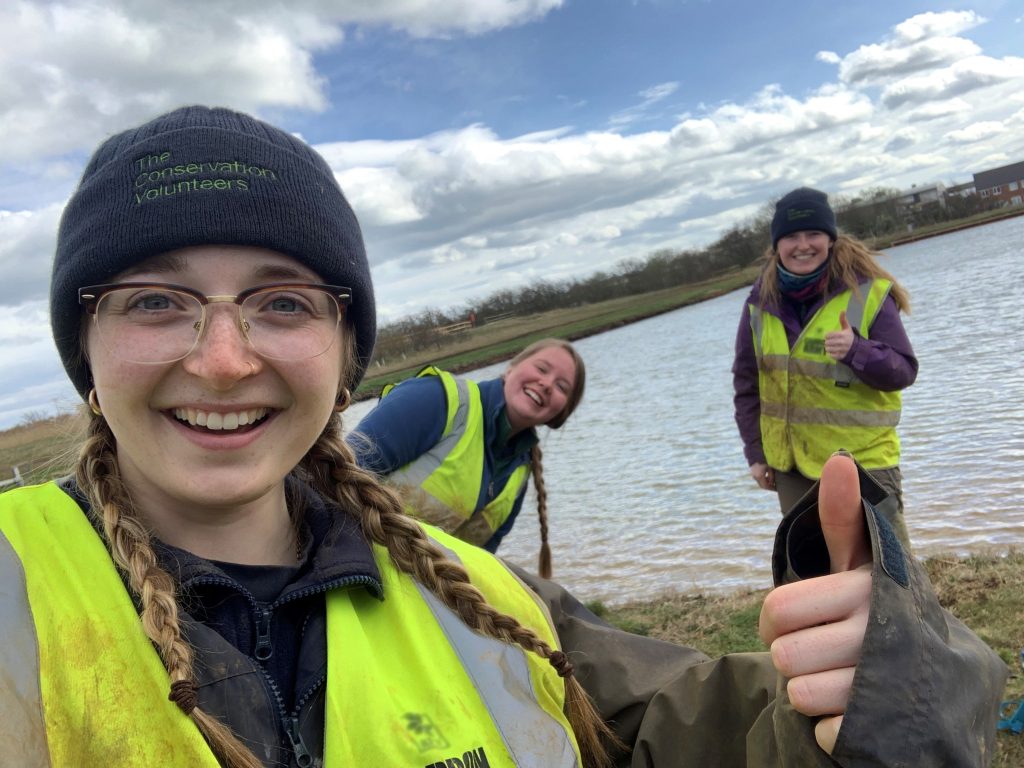
Join us!
- Volunteer: Find a volunteering session or Green Gym
- Community Groups: Find a Community Group or create your own and join TCV’s Community Network – membership is free thanks to players of People’s Postcode Lottery.
- Businesses: Support your employees’ wellbeing through corporate volunteering days where connecting with nature is emphasized.
- Online: Join us online where we’re sharing the photos of nature that brings us calm, makes us happy, or somewhere we feel has helped us during a period of difficult mental health.
- At home: Use TCV’s nature-based activity resources to get outdoors in a green space with a mindful activity.
- A moment for yourself: Finally, read this moving piece (perhaps sat with your feet in the grass!) from TCV Project Officer in Cumbernauld, Paul Barclay about his experience using the 5 ways well model. Paul wrote this blog 4 years ago and it remains incredibly inspiring, highlighting how connecting with nature can support mental health.
Keep up to date with the latest news and activities from The Conservation Volunteers by following on Twitter, Facebook, LinkedIn and Instagram. You can also sign up to receive our Greenzine newsletter for more ways to get involved.


